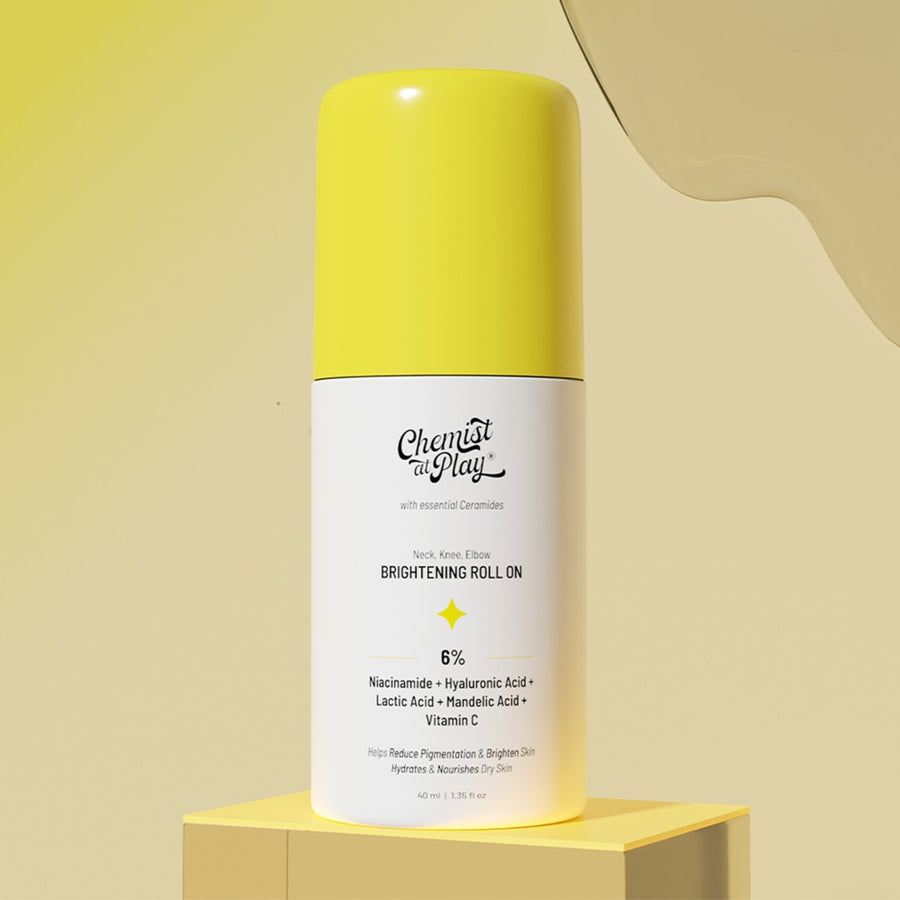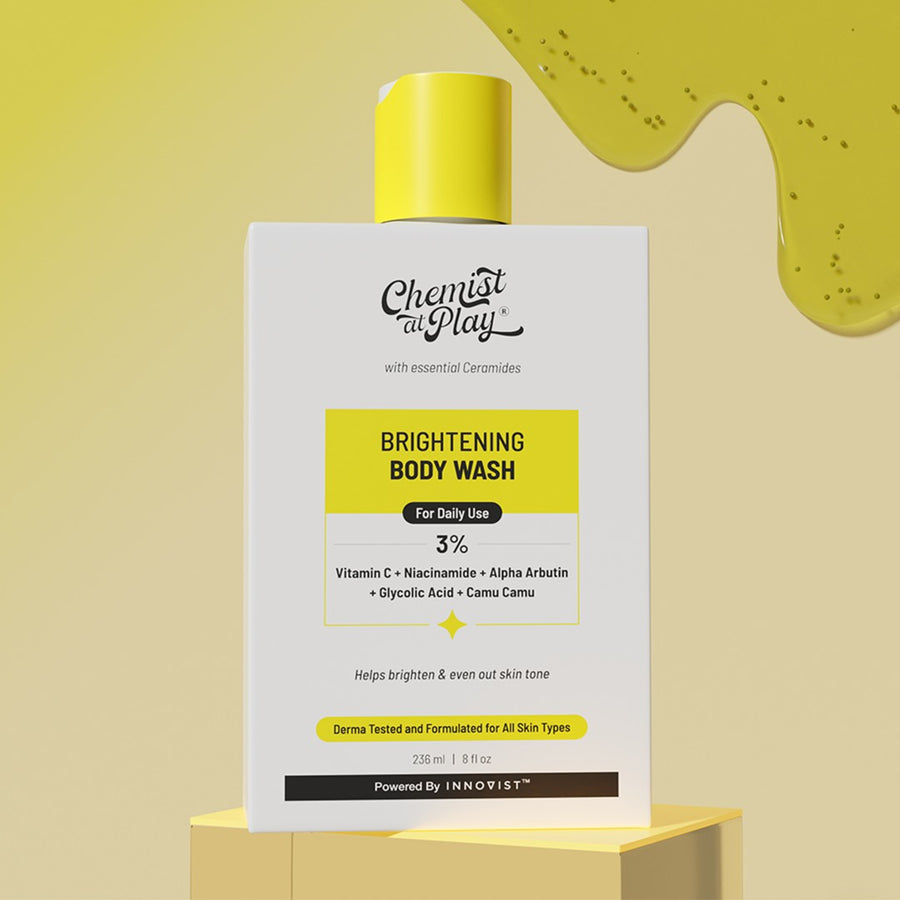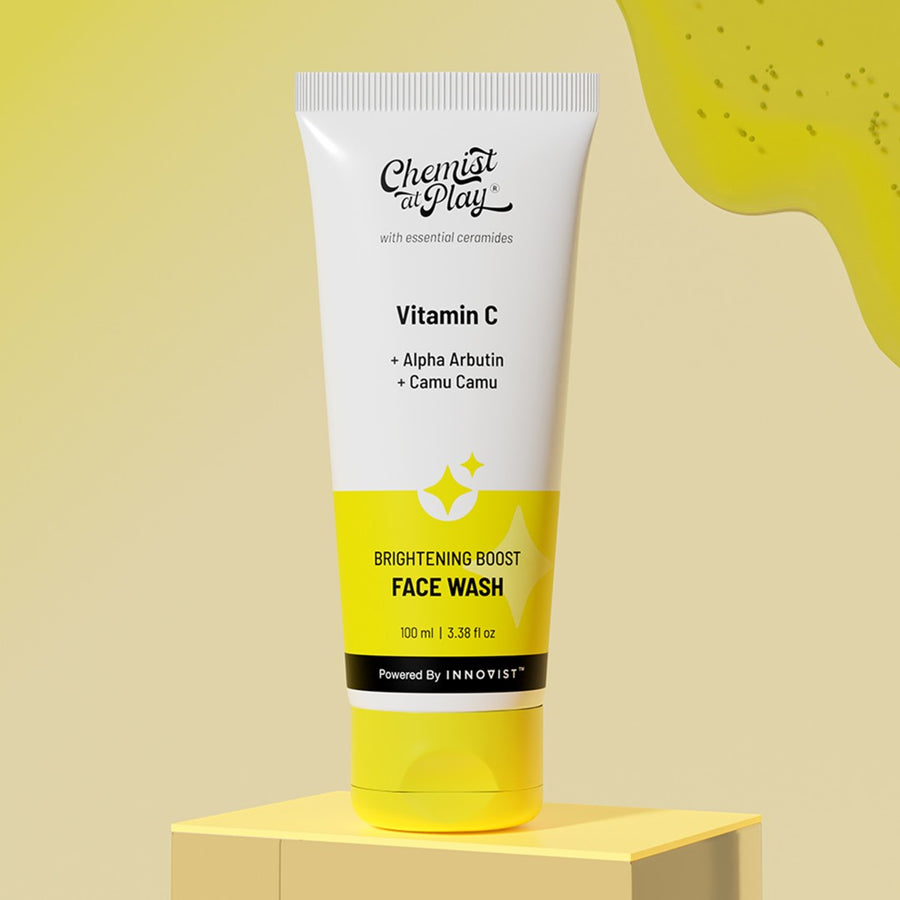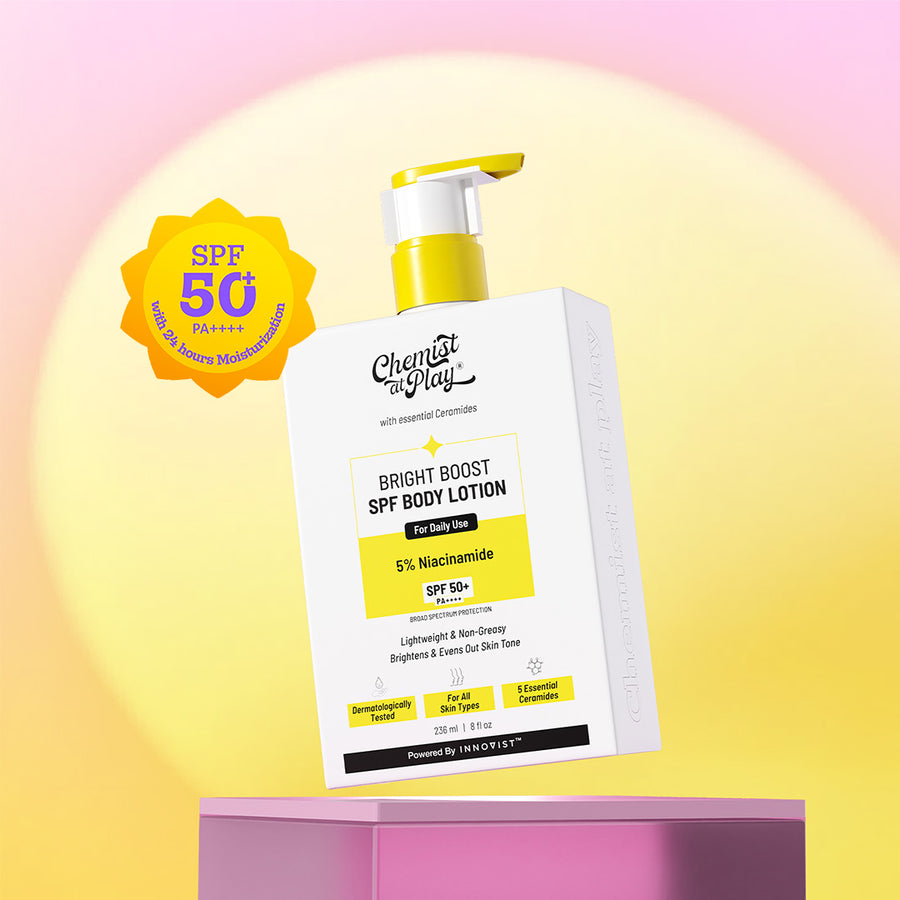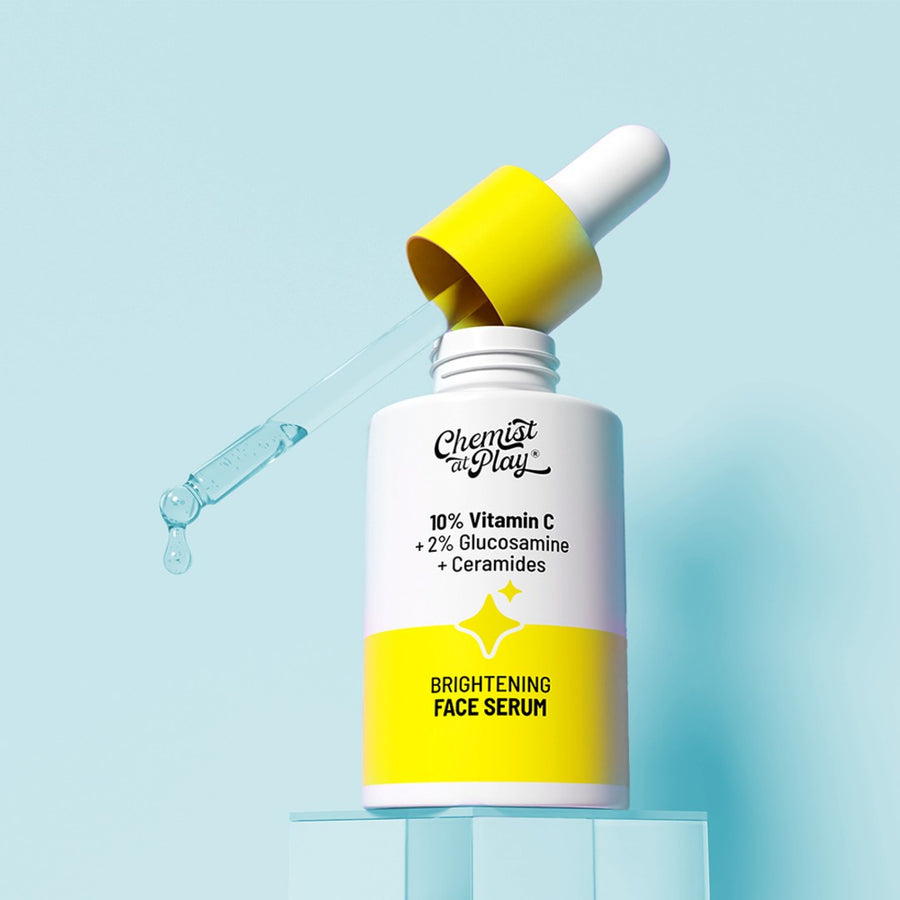
How To Reduce Melanin Production in 3 Months?
30-Second Digest
- Melanin gives your skin its colour, but excess causes dark spots & pigmentation.
- Main triggers: sun exposure, hormones, acne marks, genetics, and pollution.
- To reduce melanin: use sunscreen daily, add Vitamin C, Niacinamide, Kojic Acid, Alpha Arbutin, and keep skin hydrated.
- Home remedies like aloe vera, turmeric, and yoghurt can support brightening.
- Eat vitamin-rich foods like tomatoes, citrus fruits, leafy greens & nuts to slow melanin production.
- Laser treatments help stubborn pigmentation when skincare isn’t enough.
- Consistency + sun protection = visible brightening and even-toned, glowing skin.
Everyone dreams of naturally glowing, even-toned skin, but sometimes, excess melanin production gets in the way. Melanin is the pigment responsible for your skin, hair, and eye color. While it protects your skin from UV rays, an imbalance or overproduction can lead to dark spots, pigmentation, and uneven tone.
If you’ve been wondering how to reduce melanin in skin naturally or through effective skincare, this guide covers it all: from causes and home remedies to dermatologist-backed ingredients and the best products from personal care brands like Sunscoop and Chemist At Play that can make a visible difference.
What Causes Excessive Melanin Production?
 Melanin production (also called melanogenesis) is a natural process, but certain triggers can make your skin produce more pigment than needed.
Melanin production (also called melanogenesis) is a natural process, but certain triggers can make your skin produce more pigment than needed.
Here’s what leads to excess melanin in skin:
-
Sun Exposure
UV rays activate melanocytes, which produce melanin to protect your skin
-
Hormonal Imbalance
Pregnancy, birth control pills, or thyroid issues can affect melanin levels
-
Post-Inflammatory Hyperpigmentation
Acne scars, burns, or cuts can leave dark marks behind
-
Genetics
Some people are genetically predisposed to higher melanin production.
-
Medications
Certain antibiotics or hormonal drugs can trigger hyperpigmentation
-
Pollution and Stress
Environmental damage and chronic stress can also increase melanin activity
Understanding what causes excessive melanin production is the first step before learning how to reduce melanin naturally or through topical care.
How to Reduce Melanin in Skin?
Reducing melanin doesn’t mean stripping your natural colour, it means balancing pigment production for a healthier, even-toned glow.
Here’s how to control melanin in the body effectively:
-
Always Use Sunscreen
UV rays are the biggest culprit behind excess melanin. A broad-spectrum SPF like Sunscoop Invisible Sunscreen SPF 60 PA++++ helps block UV damage and prevent dark spots.
-
Gentle Cleansing
Use a Hydrating Body Wash infused with ceramides and amino acids. It keeps your skin barrier strong while preventing dullness caused by dryness.
-
Targeted Treatments
Products with ingredients like niacinamide, vitamin C, or kojic acid are excellent for melanin reduction.
-
Stay Consistent
Reducing melanin is a gradual process. Wear your sunscreen daily and keep your routine consistent for visible change.
-
Try Roll-Ons for Underarm Pigmentation
 The Chemist At Play Roll On can help reduce dark underarms caused by melanin buildup and friction.
The Chemist At Play Roll On can help reduce dark underarms caused by melanin buildup and friction.
If you’re thinking about how to reduce melanin in skin permanently, remember: consistency and sun protection are your best tools.
Best Skin Care Ingredients to Use for Reducing Melanin in Skin
 When it comes to melanin reduction, some ingredients work better than others. Look for these when choosing your skincare:
When it comes to melanin reduction, some ingredients work better than others. Look for these when choosing your skincare:
-
Niacinamide
A brightening powerhouse that reduces melanin transfer to skin cells.
-
Vitamin C
Antioxidant-rich and excellent for fading pigmentation and improving radiance.
-
Kojic Acid
Helps inhibit tyrosinase, the enzyme responsible for melanin production.
-
Alpha Arbutin
A gentle, effective brightener that evens skin tone.
-
Lactic Acid & Glycolic Acid
These exfoliate dull, pigmented skin layers for smoother, glowing skin.
-
Retinoids
Help boost cell turnover, reducing dark spots over time.
Products like Chemist At Play Vitamin Face Serum or Sunscoop Brightening Cream Sunscreen combine these ingredients for visible results without irritation.
Home Remedies to Reduce Melanin in Skin
If you prefer natural remedies, here are easy and safe options for melanin reduction at home:
-
Aloe Vera Gel
Soothes the skin and gradually lightens pigmentation.

-
Lemon Juice (Diluted)
Contains natural vitamin C, but must be used cautiously as it can dry skin.
-
Turmeric
Curcumin helps reduce melanin production naturally.
-
Honey & Yoghurt Mask
Lactic acid in yoghurt and enzymes in honey improve overall brightness.
-
Green Tea Extract
Packed with antioxidants that help regulate melanin production.
These home remedies for melanin reduction work best alongside daily sunscreen and hydration.
How to Reduce Melanin in Skin by Eating?
 Diet plays a huge role in skin brightness. If you’re wondering how to reduce melanin in skin permanently by eating, focus on foods that fight oxidative stress and inflammation.
Diet plays a huge role in skin brightness. If you’re wondering how to reduce melanin in skin permanently by eating, focus on foods that fight oxidative stress and inflammation.
Melanin Reducing Foods:
-
Tomatoes
Contains lycopene which protects against UV damage.
-
Carrots
Rich in beta-carotene, which promotes skin health.
-
Citrus Fruits
High in vitamin C to reduce melanin production.
-
Green Leafy Vegetables
Contain antioxidants that prevent pigmentation.
-
Fish & Nuts
Omega-3 fatty acids help maintain healthy skin barriers.
-
Water
The best drink to reduce melanin and keep your skin hydrated.
Eating a balanced diet filled with natural melanin-reducing foods helps your skincare routine work even better.
Laser Treatment to Reduce Melanin
For stubborn pigmentation, dermatologists often recommend melanin reduction treatments like laser therapy.
Here’s how it works:
-
Laser beams target excess melanin, breaking it down so the skin naturally eliminates it over time.
-
Treatments like Q-switched laser or fractional laser are effective for melanin removal from the face or lips.
-
However, laser sessions must be done by trained professionals and followed by good aftercare using ceramide-based moisturisers and broad-spectrum sunscreens like Sunscoop Hydrating Fluid Sunscreen.
Laser is the most advanced melanin treatment, but results are best when paired with consistent skincare.
Can You Slow Down Melanin Production on Skin?
 Yes, you can. Here’s how to stop melanin production naturally:
Yes, you can. Here’s how to stop melanin production naturally:
- Use Sunscreen Daily: The #1 rule for melanin control.
- Keep Skin Hydrated: Hydration helps balance the skin barrier, reducing melanin triggers.
- Incorporate Antioxidants: Vitamin C and niacinamide slow down pigmentation.
- Avoid Picking Pimples: Prevents post-inflammatory dark spots.
- Sleep Well & Eat Clean: Good rest lowers cortisol, which can affect melanin production.
Over time, you’ll notice brighter, more even skin tone.
What Are Ceramides in the Skin’s Natural Barrier Function?
Your skin barrier, the outermost layer, contains natural ceramides that lock in moisture and protect against irritants. When this barrier weakens, it can lead to dryness and inflammation, making pigmentation worse.
Using products like Chemist At Play Hydrating Face Moisturizer with natural ceramides restores skin balance and supports healthy turnover, which indirectly aids melanin reduction too.
Conclusion
Learning how to decrease melanin in skin is about balance, not bleaching. Focus on daily sunscreen, hydrating cleansers, barrier-repair creams, and brightening serums.
Whether it’s the Sunscoop sunscreen range that shields your skin from UV rays or Chemist At Play products that nourish deeply, your path to clear, even-toned skin begins with consistency and care. Pair that with a diet rich in melanin-reducing foods, and you’ll see your natural glow return, healthier, brighter, and more confident than ever.

















